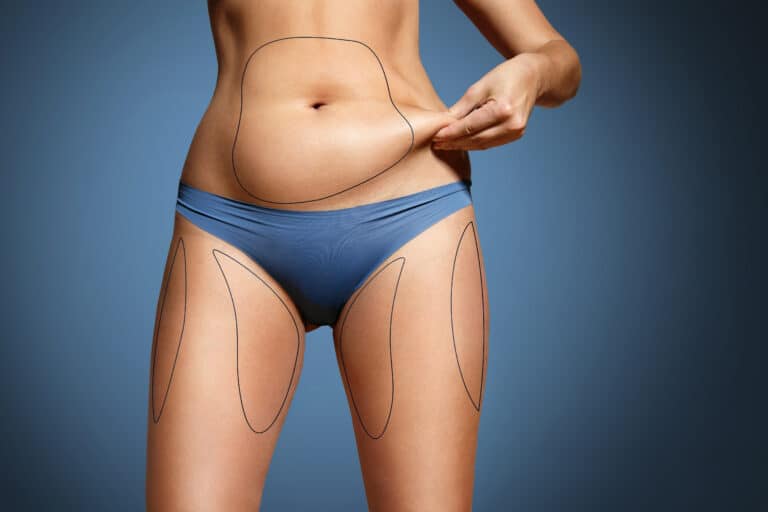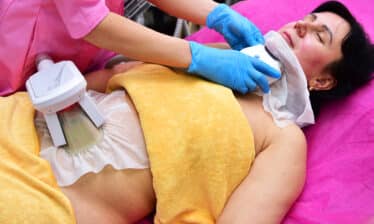Liposuction is a popular cosmetic procedure for removing excess fat to reshape your body.1 It can be performed on many parts of the body, including the arms, belly, thighs, hips, butt, neck, chin, and back.
Learn everything you need to know about liposuction preparation and aftercare below.
Who Is Liposuction Good For?
Liposuction is great if you’re looking for targeted fat loss that cannot be achieved through diet and exercise alone. Although it’s mainly intended to improve your appearance, it can also resolve health issues like gynecomastia, lymphedema, and lipomas. This procedure is mainly intended for healthy people over 18 years with good healing ability and skin elasticity, so the skin can bounce back easily once the extra fat is removed.2
The cost of liposuction procedures will vary depending on several factors, including the surgeon’s experience and the area of the body being treated.
Before the Procedure
Once you’ve decided to get liposuction, you’ll need to consult a plastic surgeon and discuss what kind of fat loss you want. After the surgical plan is finalized, you’ll have to undergo a few medical tests to ensure you’re healthy enough to withstand this procedure.3
Be sure to disclose your complete medical history and any medical conditions you may have. Your surgeon may ask you to stop taking certain medications like blood thinners, aspirin, anti-inflammatory drugs, and contraceptives for at least two weeks before the procedure. If you’re anemic, you may also need to take iron supplements.4
Finally, you’ll need to sign a consent form stating that you’re aware of the risks and benefits of this procedure. Don’t hesitate to clarify all your concerns with your surgeon at this stage. On the day of the surgery, bring someone to drive you home and stay with you after the procedure.5
During the Procedure
Before the liposuction process begins, the surgeon will mark the areas where fat is to be removed. You can opt for local anesthesia (awake surgery) or general anesthesia (which puts you to sleep) to numb the area before surgery, depending on your procedure’s length and difficulty level.6
Once your vitals (e.g., heart rate, blood pressure, etc.) are stable, the surgeon will make small incisions in the targeted area and insert a narrow tube. After the surgeon loosens the fat, it is removed using a syringe or vacuum-like tool. The incisions are then closed up. This procedure can take between 30 minutes to several hours based on the size of the area and the amount of fat to be removed.7
After the Procedure
Be prepared for some discomfort, pain, bruising, and even swelling after the surgery. You’ll be given pain relievers and maybe even antibiotics to protect against infections. Liposuction aftercare may include wearing tight (compression) garments or support bandages for a few weeks after surgery to minimize swelling.8
In most cases, the swelling resolves within a month, and the target area will begin to appear less bulky. Complete healing can take several months, so consult your doctor before performing any strenuous activities like exercise.9
If you notice side effects like bleeding, numbness, or infection, seek medical assistance immediately.10
More on Liposuction and Other Procedures
Liposuction is a useful cosmetic surgery for removing unwanted body fat. But to minimize risks and complications, you must be fully prepared and adhere to all medical advice for liposuction aftercare.
Check out My Body Treatment today for more information on body enhancement procedures and other interesting beauty tips.
SOURCES:
- NHS: “Liposuction.“
- Medical News Today: “What are the benefits and risks of liposuction?“
- Medical News Today: “What are the benefits and risks of liposuction?“
- Medical News Today: “What are the benefits and risks of liposuction?“
- Medical News Today: “What are the benefits and risks of liposuction?“
- Healthline: “What to Know About Liposuction.“
- Healthline: “What to Know About Liposuction.“
- Medical News Today: “What are the benefits and risks of liposuction?“
- NHS: “Liposuction.“
- NHS: “Liposuction.“





